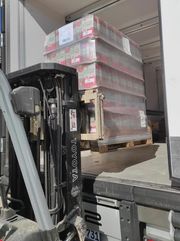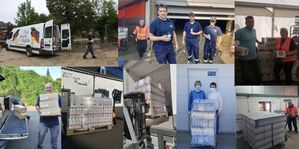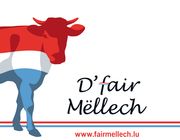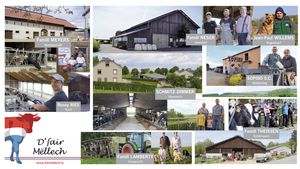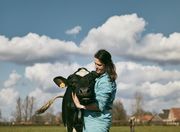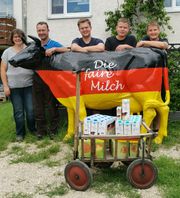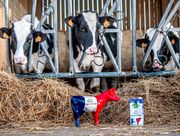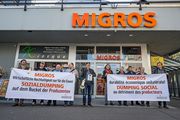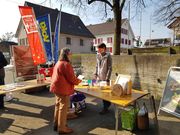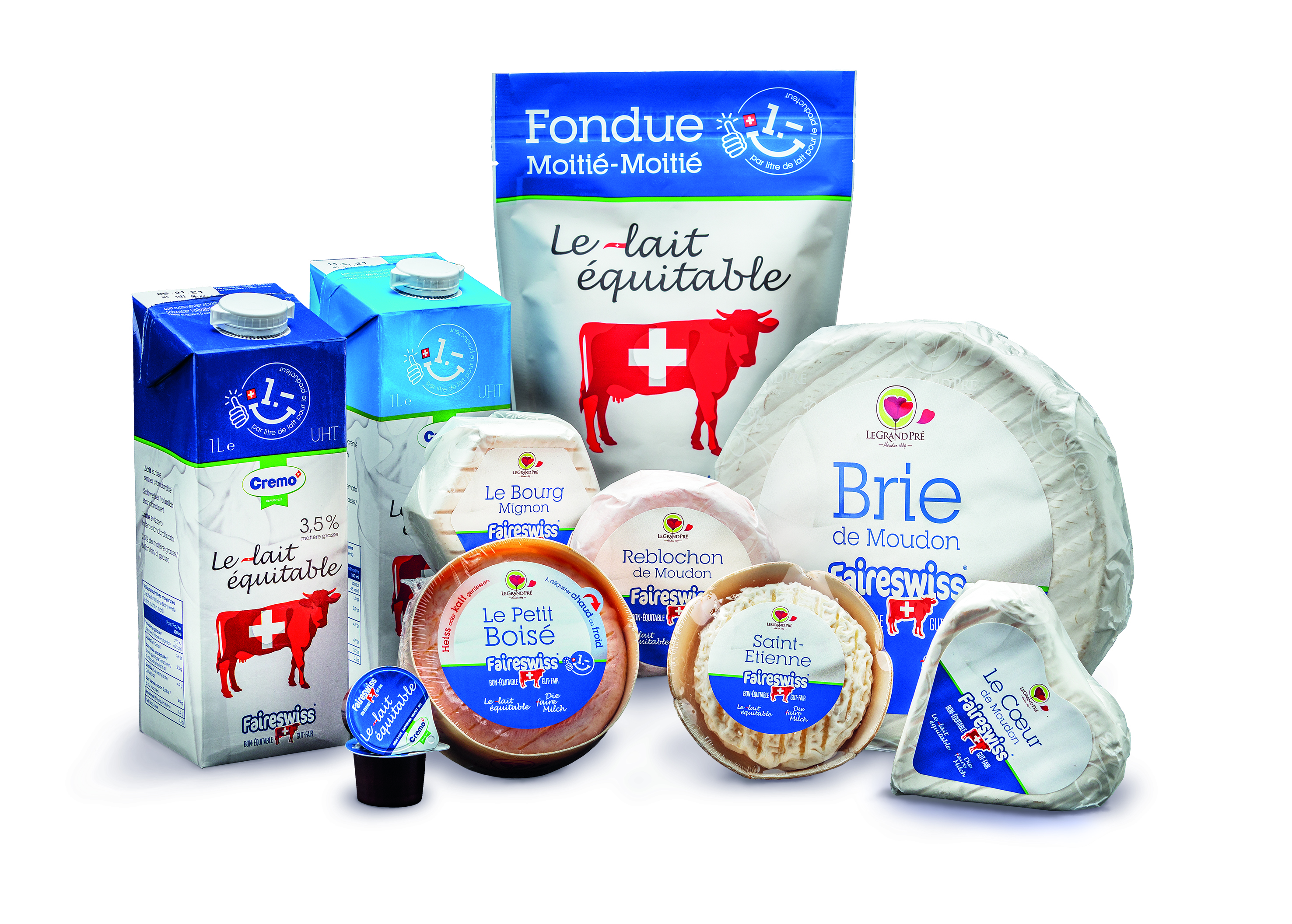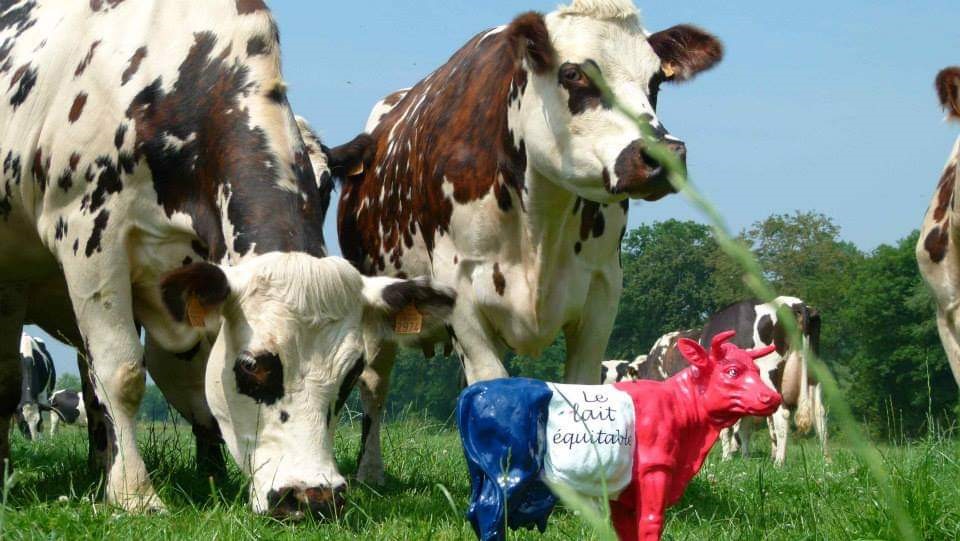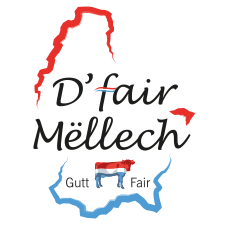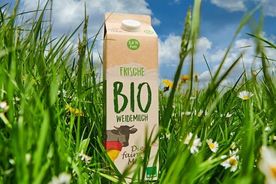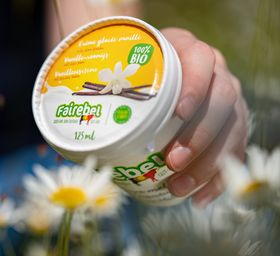EMB Fair Milk Newsletter June 2022
Newsletter as PDF
Contact
EMB - European Milk Board asbl
Rue de la Loi 155
B-1040 Bruxelles
Phone: +32 - 2808 - 1935
Fax: +32 - 2808 - 8265
Dear dairy farmers, dear interested parties,
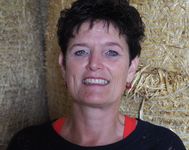
Ever since it was founded under the umbrella of the European Milk Board, the Fair Milk brand, and its various national chapters, has championed a fair milk price for producers. Fair Milk has reduced farmers' anonymity, giving individual producers a face and creating a direct link to consumers who can support dairy farmers through the premium paid to participating dairy producers for every litre of milk sold.
Fair Milk means: cutting out the middleman
Fair Milk = of farmers, by farmers, and for farmers, but also for consumers
Farmers are managing the entire Fair Milk process, therefore cutting out the middleman and making sure all benefits go to the participating producers. This also creates a direct link to consumers, which is very valuable. Normal consumers who are aware of the precarious situation of many dairy farmers are asking: what can we do? By buying products displaying the Fair Milk label, which include drinking milk alongside other dairy products such as cheese, butter and chocolate milk, shoppers can make sure they are getting a high-quality, local product for which the farmer was fairly remunerated.
Fair Milk means: a fair pricing policy
Enabling producers to run their farms sustainably with a farm-gate milk price that fully covers production costs while providing a decent income for farmers should be a given. However, reality is different. A fair pricing policy allowing family farms to flourish, to produce high-quality milk while helping to preserve cultural landscapes is more crucial than ever.
Ukraine war, inflation, future crises
With current food prices spiking, or whenever an emergency erupts, consumers are tempted to attach less importance to quality and to ensuring farmers receive sufficient income. And yet, especially in times of uncertainty, with food sovereignty and security at stake, sustaining farmers is vital. This can be done by providing them with a sustainable farming income, or they won't be able to keep producing. And without farmers, there is no food.
Fair Milk means: farmers are standing strong, negotiating sustainable prices with retailers
Negotiations are rarely easy. This is especially true today given the current circumstances, rendering negotiations for fair retail prices a tall order. The Fair Milk projects are meeting this challenge. The European Milk Board understands the challenges linked to farmers’ weak bargaining position. It is therefore important to future-proof the strong brand that is Fair Milk which, in turn, strengthens the power of farmers.
Fair Milk also means more environmental sustainability
In the field of environmental sustainability too, Fair Milk has taken important steps, from the use of non-GMO feed in Germany, FSC-certified packaging in Belgium to the collection and recycling of empty packaging under the banner of Fair Milch Säuliamt in Switzerland.
A green blueprint: While the proposed European Green Deal, with its ‘Farm to Fork’ and sustainability strategies, does not include a concept to ensure a fair income for farmers, the Fair Milk projects certainly do. All dairy farmers across Europe deserve fair conditions. And the Fair Milk initiative leads by example: a handy blueprint for all of Europe to follow.
Sieta van Keimpema, EMB President
Meet our members: face to face with D’fair Mëllech farmers in Luxembourg
Fair Milk in Belgium: quality in harmony with fair production and marketing
Fair Milk in Germany: the Ströbele family from Ehingen
France: dairy farmers unite in fairness and solidarity
Faireswiss fair milk no longer sold at Migros!
Make your own yoghurt, quark and Ziger cheese from Fair Milk
Fair Milk on social media
Impressum
European Milk Board asbl
Rue de la Loi 155
B-1040 Bruxelles
Phone: +32 2808 1935
Fax: +32 2808 8265
E-Mail: office@europeanmilkboard.org
Website: http://www.europeanmilkboard.org

